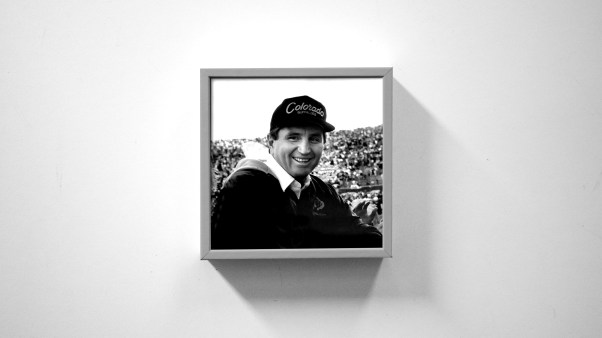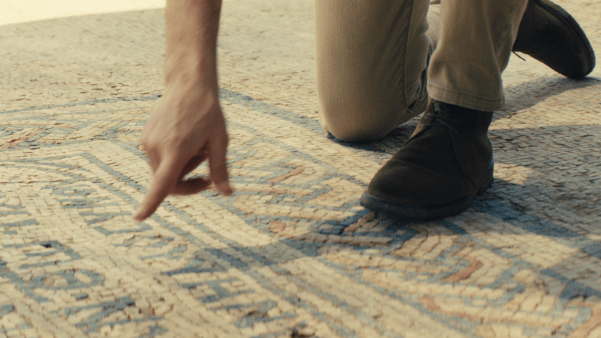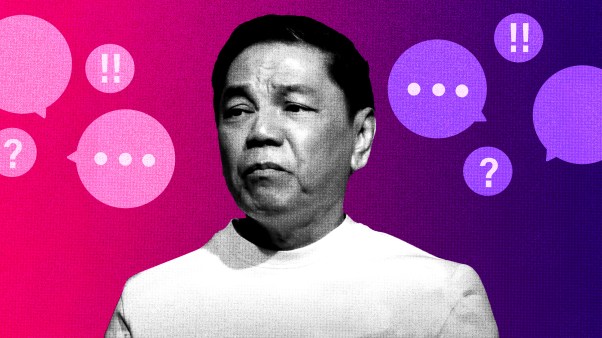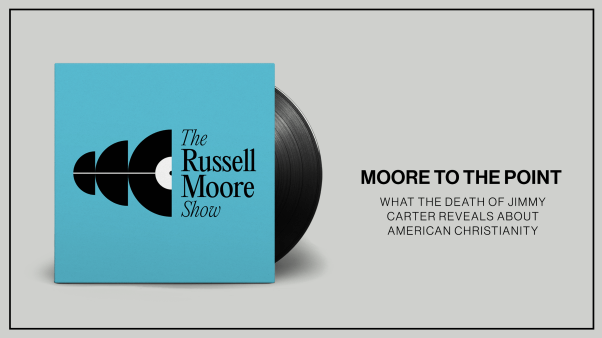There wasn’t a cloud in the sky on the day I met Lech Walesa in Gdansk earlier this year. A gentle breeze stirred. I extended my hand to the slayer of communism. He reciprocated humbly, I thought, without eye contact. Stocky and gray-haired, Walesa greeted me in a traditional Polish way:
“Quickly, quickly, let’s get this over with,” he said. “I don’t have much time.”
I had been warned. Taxi drivers, retirees, priests, doctors, an owner of a Christian radio station—most of them former Solidarity members—all got red in the face when I told them I was going to interview Lech Walesa. “He squandered his opportunity!” most of them said, as if they’d had a chance to rehearse before I crossed paths with them in various Polish cities. The ensuing litanies accused Walesa of making deals with the communists, not to mention megalomania, greed, pride, verbal gaffes, and stupidity.
But, before I met with Walesa, I was too Americanized to take my unscientific survey of Polish public opinion at face value. The one exception was the Walesaisms, Poland’s equivalent to Bushisms. Walesa has always been known in Poland for his entertaining malapropisms and other miscues—such as when he exclaimed “I am pro, and even con!” or when he talked about “positive and negative pluses.” As to the more serious indictments, I attributed them to jealousy and a complaining spirit, Poland’s lingering inheritance from communism. Is it Walesa’s fault that he banked a hefty sum for his Nobel prize? Is it his fault that he’s received 30 (and counting) honorary doctorates from institutions ranging from Harvard through St. Ambrose University in Davenport, Iowa, to Pontificia Universidad Catolica Madre Y Maestra in the Dominican Republic? Surely he deserved them all for freeing Poland from communism.
Another, more powerful, reason why I didn’t want to see Walesa’s darker side had to do with my family’s history. On June 28, 1956, my grandfather built his own glass ceiling by joining the first big anti-communist demonstration in Poland, on the streets of Poznan. The citizens’ militia (police in communist times) killed many protesters, including two of grandpa’s friends. Following the strike, grandpa was reprimanded and a communist crony began to shadow him. His pay, benefits, and promotion opportunities were lowered. Years later, other family members and relatives joined Solidarity. My father, a regional head of Solidarity, was among those who voted for the spirited electrician from a Gdansk shipyard to become the head of the union.
I left Poland in the early ’90s, just in time for my idealized view of Walesa and Solidarity to remain intact. My ignorance of Walesa’s current status in Poland resembled that of the American public.
During the Cold War and shortly after the Soviet Union’s collapse, when Walesa became Poland’s first democratically elected president in 1990, the American media devoted an enormous amount of coverage to Eastern Europe. It was easy. Even those who didn’t believe the Soviet Union was an evil empire had a clear framework for disagreement. The rise of Solidarity was a tidy, morally unambiguous story, whose actors belonged to two camps: bad (communists) and good (anti-communists).
The story was so neat and thrilling—genuinely so—that it’s surprising that Hollywood hasn’t made a movie about Walesa yet, with DeNiro cast as the protagonist. The script is already written. It could come straight from a Time magazine profile: “Sacked from his job” for his involvement with opposition groups, the “fly, feisty, mustachioed electrician,” son of peasant farmers, climbs over the fence of the Lenin Shipyard in Gdansk to join the occupation strike in August of 1980. He soon becomes the leader of the strike and then head of Solidarity, scaring the hell out of the bad guys.
A particularly—and legitimately—moving character in this blockbuster would be the man who today remains one of the few upright participants in the story. Here’s how Walesa explained to me the role of Pope John Paul II: “After the martial law, when I told [various foreign politicians] that in Poland we had begun to overturn communism and that we would overturn it, no one believed me . …But our compatriot had become the pope [in 1978]. At that time, I had maybe 10 people per 40 million citizens in Poland who wanted to fight communism. The rest didn’t believe, they didn’t want to fight. Some of them were afraid, some were part of the communist system. The pope arrived in Poland [in 1979]. A year after that, I multiplied those 10 people into 10 million . …People began to believe in themselves, they stopped being afraid, and this allowed for the party we called Solidarity. If not [for] the pope—and the pope is faith—if not [for] our compatriot, we would not have accomplished this.”
The script from Time continues the story: After prime minister Wojciech Jaruzelski imposes marshal law in 1981, Solidarity is outlawed and Walesa is either under arrest, “watched closely by secret police, or harassed” for the following seven years. Eventually, the protagonist beats the odds. The happy ending is the ouster of totalitarianism and the establishment of what many thought was going to be democracy, with the electrician becoming Poland’s president. This is where the movie would have to end.
Alas, the “happily ever after” never follows. What does follow is material for an ambitious indie movie, with a much lower budget. In the last decade, ambiguity set in. The moral roles became gray, complicated, murky. The communists and their former foes exchanged their black hats and white hats for multicolored and gray ones.
Lech Walesa is a perfect example of this.
He has given, as he told me, “hundreds, many hundreds” of lectures at American colleges and universities. He speaks to Americans about democracy and globalization, proposing “that we make the United Nations into a global parliament and make the u.n. Security Council into a global government,” governed by new principles and laws. With the Warsaw Pact now obsolete, nato should become the Ministry of Global Defense, Walesa told me. “We’d give them topics that are uncomfortable for the United States to handle on their own—terrorism, Israel and Palestine, anti-Semitism, and racism.”
“Each one [of my American lectures],” Walesa pointed out, “has ended so far with standing ovations. So, my message gets to them and I am liked there.” He may have been exaggerating the numbers, but not the warmth of his reception. When it comes to Walesa, Americans still live in the early ’80s. The invitations, the effusive audiences, the ever-increasing number of honorary degrees, as well as about 50 awards that include six Man of the Year titles from publications such as Time (1981) and Saudi Gazette (1989)—they all inadvertently feed his delusions of grandeur. One wonders if Walesa was joking when he once retorted to someone, “I know the law better than that. I have, after all, honoris causa from many a university.”
Even insightful chroniclers such as Peggy Noonan still seem to see things from an outdated perspective. In April, her account of her interview with Walesa ran on the first page of the first issue of The New York Sun. Although he lost two bids for re-election to an ex-communist (receiving a meager 1.01 percent of the vote in the last election) and hasn’t made any substantial news since, Noonan gushed over him with the absolving gullibility of a high-school girl talking about a crush. Walesa, “who is a great man,” has gone “from being one kind of romantic to another.” Having once been an “Extremely Important Person,” he has turned into a “Guy You Don’t Look Twice at On the Street,” she says. Oh, how the Poles wish this were the case! The truth is, his megalomania won’t let him return to ordinary life. He’s already volunteered to become the president of the United States of Europe, “because long ago, it was my idea to form [such a federation],” as he told me.
The Lech Walesa I met in Gdansk seemed far from a romantic. It appeared, in fact, that he has gone from Someone at Whom You Don’t Look Twice on the Street to an Extremely Self-Important Person. In spite of being in a hurry, as he told me in his greeting and repeated thereafter, he kept interrupting the interview by answering the phone. Here’s a condensed record of one chat with a caller:
“Yes. Hello. Yes . …It depends how many people are going to be there—if there are only five, then of course I’m not going to come. If there will be over a hundred, then I’ll show up . …But why? … Dang, I don’t know, I don’t like it . …Well, because he is not even a president. He’s a former president. Two political corpses? Why do I need that? … Yes, but what do I … what’s in it for me? You know how it is with morality these days.
. … I don’t know . …Yes, but you know—I’m a tired, sick man. Why should I drag myself there? In the name of what? … Listen, I already take changes of climate, travel, uncomfortable airplanes, uncomfortable cars . …Okay, I need an exact list of who’s going to be there. Then maybe really I should . …Come on! Albania? [He gasps and laughs.] Albania?! … They’re political corpses . …If there aren’t any corpses, then maybe I’ll be there, okay?”
When Walesa—who became a political corpse, as a Polish idiom has it, after the presidential election in 2000—wasn’t on the phone, he answered my questions. Given his initial hostility or tiredness or both, I tried hard to be like Diane Sawyer. I nodded politely, maintained eye contact, smiled empathetically, and respectfully asked open-ended questions. But from the very start, he rarely looked at me, and instead talked to the table on his left or to the lamp, gesticulating impulsively.
I upset him by asking why only 1.01 percent of the Polish electorate voted for him in the last election, instead choosing to reelect an ex-communist. Did the people expect too much of him—or did he promise too much?
“Madam, I don’t know what you consider a victory and a loss,” he said. “If names are important, then Lech Walesa lost. But if what a name represents is more important—what Lech Walesa represented or headed—then all of it won. So you have to pick: Are you asking about Lech Walesa? … Or are you asking about programs and solutions? If you’re asking about solutions, then Walesa won. Walesa had said that we needed … different economic solutions … in Poland. Today everyone confirms that I was right. So I didn’t lose anything; I won everything.”
I remembered a taxi driver telling me that Walesa was a leader for a time of war, not for a time of peace. It’s not that all the solutions he touted were bad. I especially appreciate his decision to split Solidarity into several parties because, as he told me, “a monopoly within Solidarity would have been worse than a communist monopoly.” But quite apart from his political goals—a very mixed bag—his demeanor got in the way. For example, when his ex-communist opponent and now Poland’s president, Aleksander Kwasniewski, offered a handshake to Walesa in public, saying, “I extend my hand to you,” Walesa snapped, “I extend my leg!” The same combativeness that helped topple communism is in part responsible for Walesa’s eviction from the political scene.
“But your philosophy is this,” Walesa continued. “When you fight with someone, then you beat your opponent and you sit down in his place. I see it differently: I beat communism—you don’t doubt it, do you?” I didn’t. “The communists are implementing my program. They have to go through gymnastics to do it all . …So I am a double winner, but you say that I’m a loser.”
My question about the role religion plays in his private life—”for example prayer, Mass, or the reading of Scripture”—was another opportunity for him to launch an attack.
“I am a man of faith,” he said. “I treat religion seriously. Without religion, without faith, I wouldn’t do all
I did—I wouldn’t even be talking to you—because why? I did my thing, and you ask me tricky questions. Why do I need this? Why should I play a mentor or a teacher? But because I am a man of faith, I know that you will make this [interview] into something, people in America may be helped by it, you will make money on it, you will do a good job. That’s why—because of faith—I am meeting with you, I am talking with you, I am enduring this . …I do everything possible in order not to go to hell. If I weren’t working, I would surely end up there.”
After he opened his heart like this about his faith in God, I had to tell him that I hadn’t intended to ask him tricky questions. I explained that I wanted to give him a chance to respond to the criticisms that are circulating about him in Poland, ones that I was sure he’d heard. He responded with a non sequitur that might have been uttered by one of Dostoevsky’s minor characters:
“Madam, it’s democracy—it’s weakness, it’s wisdom, it’s stupidity, it’s normality, and I’m not surprised. It would be worse if it weren’t here. Then you could tell me, ‘You hadn’t built democracy!’ because you would have no doubt. So, that’s what makes me happy. But I don’t like being jerked around.”
The taxi driver was right: Walesa was a man of war for a time of war. He had the guts, the spunk, the ideas, the charisma. But he was poorly equipped to face the challenges of peace.
Today, when it seems that his 10 million supporters have shriveled into 10, he is probably a lonely man. Too bad he isn’t taking the way out of this political deadend, the way that begins with a question.
Why, if his democratic ideas are good, have the Poles, in a cruel irony, chosen his opponents—the former communists—to implement them?
Walesa’s quick temper and lack of refinement are not the only reasons. Andrzej Nowak, Polish historian and editor of Arcana, a bimonthly on politics and culture, writes that Walesa conducted his presidential campaign under the motto of abandoning any compromise with the communists. But he didn’t follow through. He disappointed the voters with his decision not to dissolve the compromised “contract” sejm, the main chamber of the parliament (in which Solidarity members’ involvement was limited by a deal with the ex-communists), and with his symbolic visit to the communist-run daily Trybuna Ludu, writes Nowak. Walesa’s veto of a law intended to strip the retirement privileges of former Stalinist police operatives—the same gang that fired at my grandpa and his colleagues in 1956—was equally demoralizing. The forced resignation of Walesa’s prime minister, Jozef Oleksy, after he was accused of cooperation with Russian agents, didn’t help either. Nor did the failure of the first Solidarity-based government, headed by Jan Olszewski.
Scientist and contributing editor of Pigulki magazine Marek Cypryk sums it up this way: “While the ruling Leninist party, PZPR, transformed itself into a Western European-style social democratic party, Solidarity failed because it did not manage to work out a program of popularly supported reforms. The politicians lacked experience, capacity to prioritize their causes and … to make compromises. Too few activists from the era of struggle knew how to switch into a political style of building. Amateur politicians lost to professionals, to people who knew how to read expectations of the electorate and how to manipulate it.”
This situation isn’t unique to Poland. Former communists have retained varying degrees of control over government, the economy, and the media in Romania, Hungary, Lithuania, Belarus, Bulgaria, and Ukraine. For the present and for the near future, at least, we lack an overarching interpretive framework for understanding the new situation, not only in the post-communist countries but in Europe generally. In the meantime, there always will be—however convoluted—the facts.
Agnieszka Tennant is an associate editor at Christianity Today magazine.
Copyright © 2002 by the author or Christianity Today/Books & Culture magazine. Click here for reprint information on Books & Culture.








